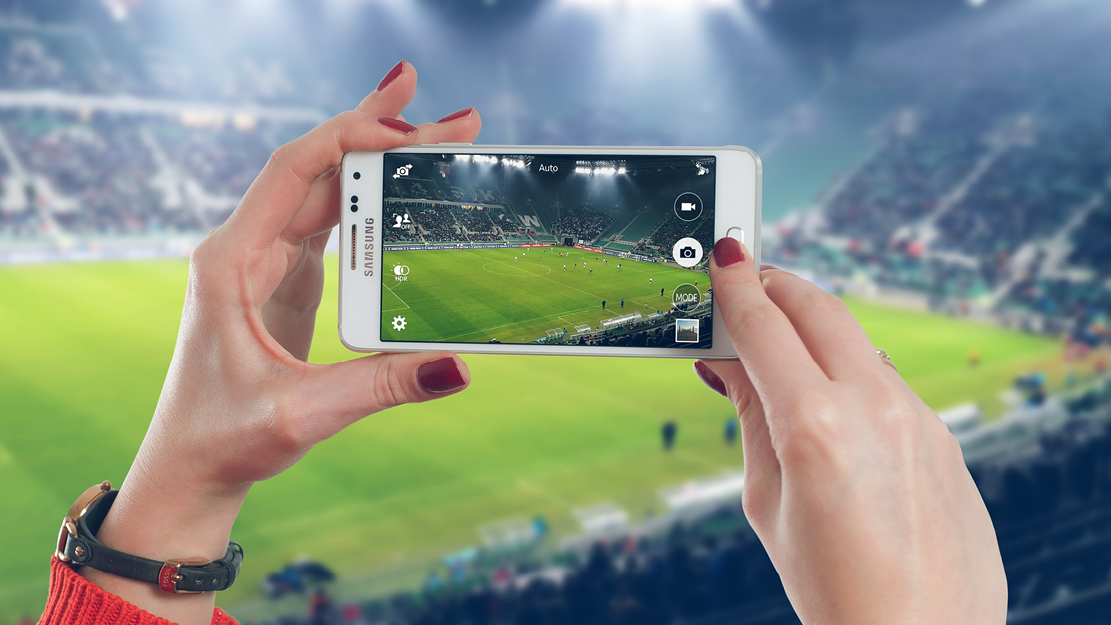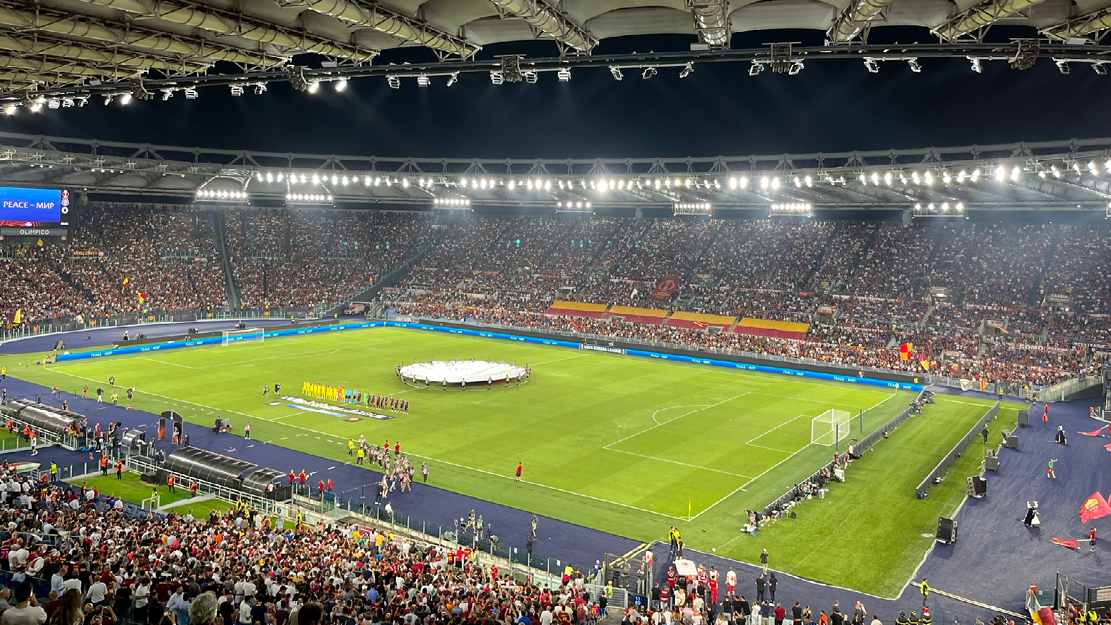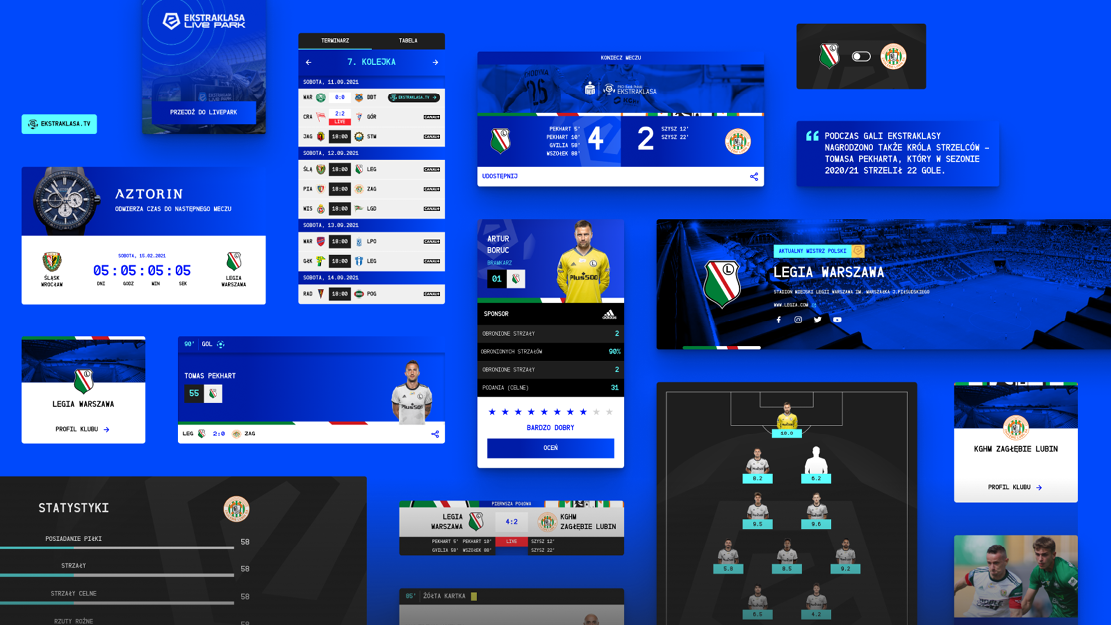Artificial Intelligence (AI) is transforming the way football clubs engage with their fans. The rise of AI technology is helping clubs to collect, analyze and interpret data to provide personalized and interactive experiences for their fans. We took a look at areas where AI is already in use.
By Bruno Ivich.
AI not only improves fan engagement but also helps clubs to understand the needs of their fans, build strong relationships, and increase revenue. Additionally, AI enhances the experience at live matches with the intention that fans see more value added live than watching the game on TV.
Chatbots
One of the most popular ways AI is being used in football is through chatbots. Chatbots are computer programs designed to simulate human conversation. They can provide instant answers to fans’ questions and help with ticket purchases, merchandise sales, and other club-related services. This not only saves fans time but also provides a convenient and efficient way for them to engage with their club. For example, Manchester United, one of the biggest football clubs in Europe, has a chatbot that provides fans with live match updates, player statistics, and other relevant information. Another example is FC Barcelona where its chatbot gives personalized content based on the fan and its preference. Similarly, the UEFA Champions League chatbot provides fans with information about the tournament, including live scores, fixtures, and team news. Without a doubt, chatbots are a trend in the industry as they provide a fast and convenient way for fans to access information and engage with their favorite teams and tournaments.
Personalized content
Another area where AI is being used in football is through personalized content. AI algorithms can analyze fan data and create customized content that is relevant and appealing to each fan. This includes everything from personalized news articles to videos and social media posts. This not only helps fans feel valued and connected to their club but also provides clubs with valuable insights into what content is most popular with their fans related to highlights, player statistics, and match predictions. The main examples have been for player comparisons where AI can compare the performance of two players based on various metrics, such as passing accuracy, goals, and assists. This allows for personalized insights into a fan’s favorite player and how they compare to others in the league. Another example is related to predictive analytics where AI can predict the outcome of upcoming matches, based on historical data, current form, and other factors, taking into account a fan’s favorite team and players. Last but not least, social media content based on a fan’s preferences and interests. For example, a fan who follows a specific player may receive personalized social media content, such as behind-the-scenes footage or exclusive interviews as seen with Bayern Munich. Another example of personalization is how FC Barcelona has a dedicated Twitter account that provides live match updates, player interviews, and other club-related content.
Virtual and augmented reality
One of the most exciting applications of AI in football is through virtual and augmented reality experiences. These experiences allow fans to immerse themselves in the world of their club, from behind the scenes tours to virtual match-day experiences. This not only provides fans with a unique and engaging experience but also helps clubs to build stronger relationships with their fans by allowing them to experience the club in a way that was previously impossible.
Throughout the FIFA World Cup QATAR 2022, FIFA launched its app FIFA + where all fans could enhance their matchday experience with video replays and different camera angles on their phone as well as access to relevant statistics live including heatmaps and insights. The app provided a full immersive experience that enhanced the experience to an unimaginable point.
Prominent solutions based on AI
With the rise of prominent uses of AI in football, it is no surprise of the variety of different startups that create solutions and applications for a better sport itself. For instance, the company SEYU, a member of the FBIN Business Network, offers real time moderated fan generated content to stadiums and teams to capitalize on the fever of the emotion. Basically, a fan posts their selfie and later appears inside the stadium being an useful asset for the team who will simply improve the fan experience and engagement with their community.
Another company focused on generating a full immersive experience for football fans, and also a member of the FBIN Business Network, is Zetly, with the objective that fans can influence team decisions by collecting and trading digital collectibles and tokens. The platform allows fans, clubs, federations and athletes whose aim is to capitalize on sports emotions to do it by creating a bridge to the digital world for all sports. Mainly, Zetly reduces the distance between sports and its fans, making it a 24/7 fan experience.
A third company revolutionizing the AI space in the sport is Rascasse, an Al driven consumer insights platform for brands. The platform allows to improve the understanding of consumers, competition and markets enhancing the customer experience. Rascasse is a powerful tool to better understand fans, prior to taking any marketing or new project decision. A better understanding will allow greater long term results for clubs and federations and a more connected relationship with fans.
In conclusion, AI is transforming the way football clubs engage with their fans. From chatbots to personalized content and virtual and augmented reality experiences, AI is providing clubs with new and innovative ways to build relationships with their fans, increase fan engagement, and ultimately drive revenue. As AI continues to evolve, it is likely that we will see even more exciting applications in the future that will further enhance the fan experience. At this moment, we are just at the beginning of everything that AI could do to improve the general fan experience. The sport itself has even incorporated Video Assistant Referees (VAR) which uses AI to assist referees in making decisions during matches by analyzing video footage of key moments in a match and providing referees with the information needed for accurate decisions.
By leveraging technology and data, clubs are able to provide fans with unique, personalized experiences that help build stronger relationships and increase fan engagement. The key for the future of football is about those clubs or federations that think beyond the 90 minute game and turn it into a 4 or 5 hour full time immersive experience of a lifetime including AI, fan zones, memorabilia photos shared on social media, exclusive post match content, and so on. Only time will tell us the success of AI in sports, and the variety of new services and ideas that will continue flourishing to capitalize on existing demand.






